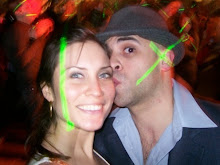http://etext.lib.virginia.edu/bsuva/sb/ (vol. 3, pgg 19-36)
As I understand, this is one of the seminal essays in all 20th century textual criticism, as is demonstrated by the introduction of so many ideas and terms that would establish themselves as mainstays in the scholarly debates and in the technical jargon.
ACCIDENTALS AND SUBSTANTIVES: "we need to draw a distinction between the significant, or as I shall call them 'substantive', readings of the text, those namely that affect the author's meaning or the essence of his expression, and others, such in general as spelling, punctuation, word-division, and the like, affecting mainly its formal presentation, which may be regarded as the accidents, or as I shall call them 'accidentals', of the text" (21).
[I disagree with Greg's statement that substantives constitute "the significant . . . readings of the text, those namely that affect the author's meaning or the essence of his expression" (21). This might be true in many cases of prose writing, but in a modern poem, a comma or a line-break can have a radical role in shaping "the essence" of the author's expression.]
BASIC POINT: "The true theory is, I contend, that the copy-text should govern (generally) in the matter of accidentals, but that the choice between substantive readings belongs to the general theory of textual criticism and lies altogether beyond the narrow principle of the copy-text. Thus it may happen that in a critical edition the text rightly chosen as copy may not by any means be the one that supplies most substantive readings in cases of variation" (26).
THE PROBLEM OF REVISIONS (and the necessity of good personal judgement!): "The fact is that cases of revision differ so greatly in circumstances and character that it seems impossible to lay down any hard and fast rule as to when an editor should take the original edition as his copy-text and when the revised reprint. All that can be said is that if the original be selected, then the author's corrections must be incorporated; and that if the reprint be selected, then the original reading must be restored when that of the reprint is due to unauthorized variation. Thus the editor cannot escape the responsibility of distinguishing to the best of his ability between the two categories. No juggling with copy-text will relieve him of the duty and necessity of exercizing his own judgement."
Monday, January 21, 2008
Subscribe to:
Post Comments (Atom)

No comments:
Post a Comment